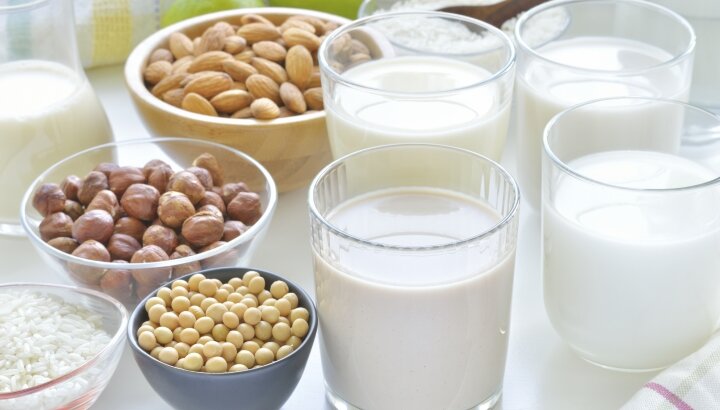
I stopped drinking cow’s milk years ago when the doctor told me that my cholesterol level was on the borderline to high. I drank soya milk for several years, but more recently switched to vegetable-based milk after discovering that it is a healthier option.
And it now seems that I’m not the only one. Just by taking a look on our supermarket shelves we can see how many more options are available to us if we are considering changing from the cow’s stuff to a dairy drink more suited to our body.
Cow’s milk has reigned supreme over consumers for decades. So, basically that meant due to no other choices, we’ve had to accept price hikes, recipe changes and whatever else producers have deemed fit.
Well, that’s now changed and cow’s milk producers will have to sit up and listen if they don’t want their business to fall apart completely.
Whether or not humans should drink milk from a cow in itself has been a hot topic of debate in recent years. Many find it a little odd that we as adults are drinking the milk of another mammal. And that’s without even thinking about what’s exactly in the cow’s milk that lines the supermarkets’ shelves.
For years now, many scientists and researchers have been warning about the health risks of drinking milk from a cow. They are worried about what additives are found in the product and their effect on the human body.
It is well-known that many cows are treated with hormones so that they produce more milk, and they are also fed other drugs, such as antibiotics, to help with infections and disease. Is this something that we really want to be consuming as well?
Not only that but meat and dairy products from animals have a heavy carbon footprint, which is bad for the environment. The white stuff has also been linked to high cholesterol, it is laden with calories and saturated fat and just doesn’t form part of a healthy diet.
Yes, cow’s milk is rich in protein and certain vitamins, but people are now waking up to the fact that these can be obtained from other sources just as easily.
And there are plenty of other options available – all vegetable based. They were once upon a time only present on the shelves of health-food shops, but now due to their rising popularity and the fact that a greater number of consumers are shunning cow’s milk in protest, you can find them in all your local supermarkets in Spain.
The choice is no longer whether to go for skimmed, semi-skimmed or full fat because vegetable-based milk options have made their presence felt.
There are three types of milk that originate from plants: those from nuts, cereals or fruit.
The most popular at the moment, and the ones that you will most likely find in your local Mercadona or Supervalú, include soya, almond, rice and oat milk.
Consumers buying these products are no longer solely vegans or those with a dairy intolerance, dieters or simply families concerned about the health risks associated with cow’s milk are also choosing these options.
Oat milk
Strictly speaking, this isn’t a milk as it is made from oats and water. It is rich in fibre, easy to digest and lowers cholesterol and triglycerides. Due to being a low glycaemic index food, it is a long-lasting energy drink that is often favoured by people who practise sports. It’s good for keeping your intestinal flora healthy and for combatting constipation.
Almond milk
This milk is good for your bones as it contains a lot of magnesium. It’s also packed full of selenium, which is good for the immune system, manganese, and vitamin E, which is good for the skin and is an antioxidant. Almond milk is a great source of unsaturated fat, protein, potassium and flavonoids. It has less sugar than soya milk and keeps cells and body tissue healthy.
Rice milk
Rice milk is a healthy, low-calorie option to cow’s milk, although due to its starch content it should be avoided by those that have diabetes. It is low in protein, however, but is a good source of unsaturated fat. It also contains high levels of niacin, vitamin B6, iron, copper and magnesium, leading to lower blood pressure, an increased red-cell production and more energy and vitality. Rice milk is also a good substitute if you want to lower your cholesterol levels. Fortified rice milk contains a lot of calcium and vitamins A and D.
Other alternatives include: coconut milk, hazelnut milk, spelt milk, quinoa milk or hemp milk.
The consumption of traditional cow’s milk has declined 25% over the last 15 years in Spain, although the dairy-product industry is not over-alarmed at the moment. But, maybe it should be. There is a growing concern over what producers are putting into our food just for profit benefits and more and more people are refusing to put up with this any longer and are making a stand. Although consumers’ habits are ever-so-slowly changing so that it is barely noticeable, once the tide has turned, it won’t just be the dairy producers that are quaking in their boots.












